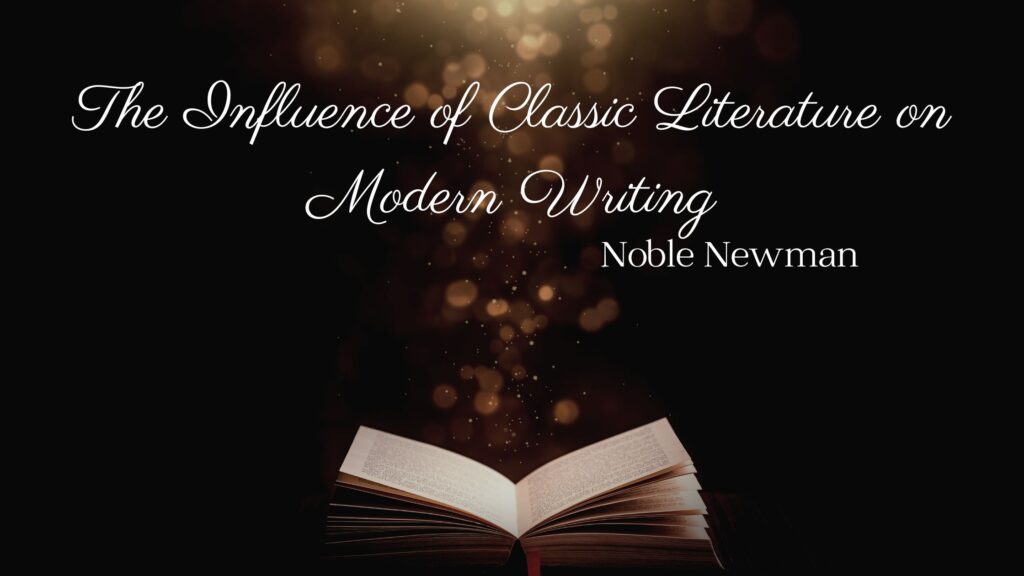Classic literature has left an indelible mark on modern writing with its timeless themes, unforgettable characters, and enduring narratives. The literary canon, spanning centuries and encompassing various genres and cultures, continues to shape and inspire contemporary authors.
In this exploration, we delve into the profound influence of classic literature on modern writing.
Themes and Universality:
Classic literature often explores fundamental human experiences and universal themes such as love, loss, ambition, and morality. These timeless themes resonate with modern readers and serve as a wellspring of inspiration for contemporary authors.
Character Development:
Classic literature is renowned for its richly developed and complex characters. Modern authors draw from the depth and intricacy of classic literary characters when creating their own. Jane Austen’s sharp-witted heroines, like Elizabeth Bennet in “Pride and Prejudice,” have paved the way for creating strong, independent female protagonists in modern literature.
Narrative Techniques:
Classic literature often employs innovative narrative techniques that continue to shape modern storytelling. James Joyce’s stream-of-consciousness writing style in “Ulysses” has influenced contemporary authors to experiment with narrative perspectives and interior monologues.
Social Commentary:
Many classic works are not just timeless stories but also serve as social and political commentaries. Charles Dickens, for example, used his novels like “Oliver Twist” and “Great Expectations” to shed light on the injustices of Victorian society. Modern writers often follow suit by addressing pressing social issues, drawing inspiration from classic literature’s ability to blend storytelling with commentary.
Literary Allusions:
Modern writers frequently pepper their works with literary allusions to classic literature. These references pay homage to the literary giants of the past and add depth and complexity to the text. For instance, T.S. Eliot’s poem “The Waste Land” is replete with allusions to classic works such as Dante’s “Inferno” and Shakespeare’s “The Tempest.”
Language and Style:
The language and style of classic literature have left an indelible mark on modern writing. The works of authors like Jane Austen, Mark Twain, and Charles Dickens have influenced the development of the English language and continue to shape the way modern authors craft their prose.
Archetypal Plots:
Classic literature often features archetypal plots and storytelling structures that form the basis for many modern narratives. The hero’s journey, the tragedy, and the bildungsroman (coming of age) are all narrative forms rooted in classic literature.
Cultural and Historical Context:
Classic literature provides valuable insights into the culture and history of the eras it was written. Modern writers often look to classic texts to better understand the past and incorporate historical accuracy and authenticity into their own works. Historical fiction, for instance, relies on classic literature for inspiration and research.
The influence of classic literature on modern writing is profound and enduring. From themes and characters to narrative techniques and cultural context, classic works serve as a wellspring of inspiration and literary guidance for contemporary authors.

